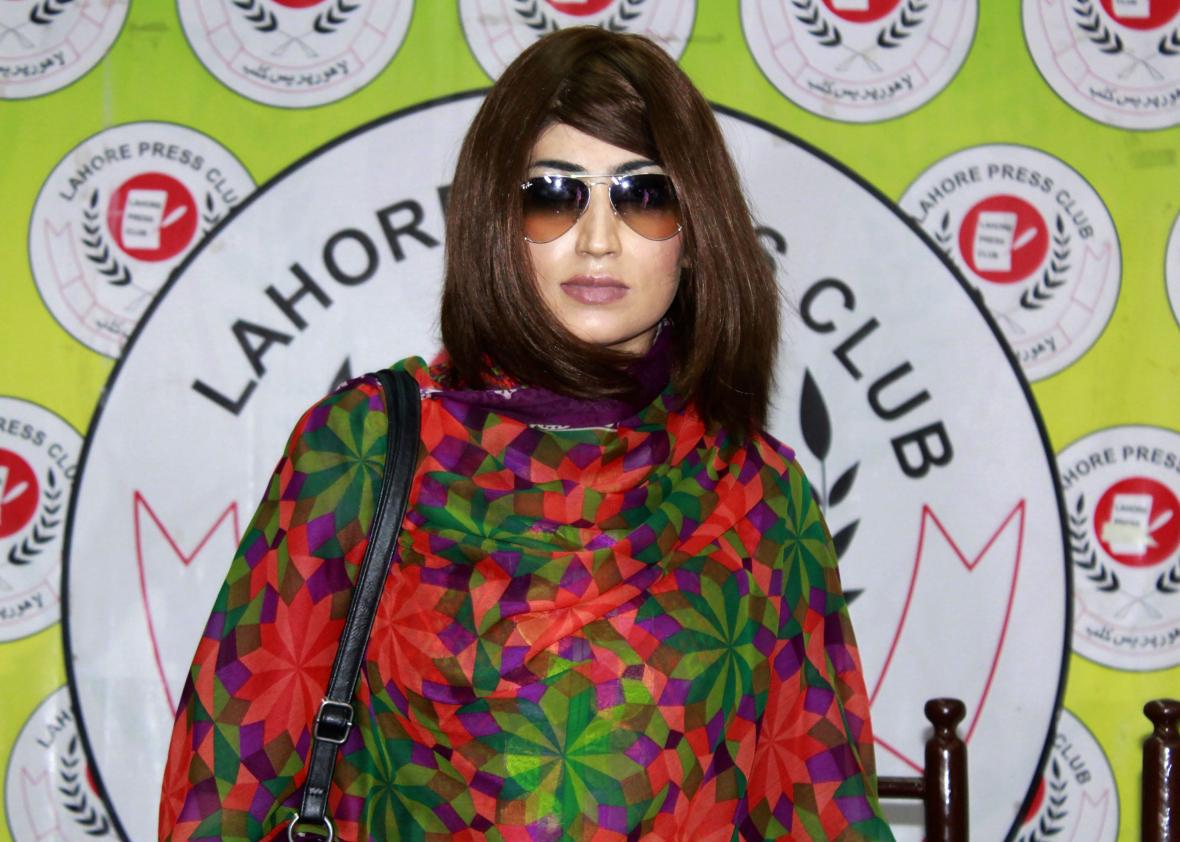Qandeel Baloch was from a poor family in Punjab. She was a social media star. And on Saturday, police officials announced that they believe she was also the victim of a so-called honor killing, strangled to death by her brother.
From the New York Times:
Ms. Baloch, 26, a model, singer and social media celebrity, had gained notoriety in Pakistan recently because of provocative, seminude photographs of herself that she posted on social media sites, and appearances in music videos.
Her bold persona defied the conventions of Pakistan, a deeply conservative society. She was reviled by some in the country for being crass and vulgar, and prone to attention-seeking stunts. But other Pakistanis admired her defiance and independence. She attracted more than 700,000 followers on Facebook and at least 40,000 on Twitter.
“Qandeel was probably the first true female internet celebrity in Pakistan, in that her celebrity had nothing to do with any achievement beyond her provocative presence on social media,” said Hasan Zaidi, a Pakistani filmmaker and media critic.
Born Fauzia Azeem, Baloch ran away from home to become a star. She was unsuccessful in her attempts to enter the mainstream entertainment industry, but found fame through social media. By her own admission, the woman sometimes called Pakistan’s Kim Kardashian pushed the boundaries of her country’s cultural conventions, telling the BBC in an interview earlier in July, “I know I exploited the freedom given to me by my parents,” wryly adding, “But now it is too late to go back.” Masterjee Bumbu of Bumbu Sauce, the musical group that wrote a song in her honor, said in the same clip, “I don’t think there’s anyone else in Pakistan like her right now. She’s a cultural icon.”
If her death was indeed an honor killing, it is one of hundreds carried out each year in Pakistan by individuals who believe their female relatives have harmed their families’ reputations to such an extent that they deserve death. The Pakistan Human Rights Commission estimates more than 3,000 women died in honor killings between 2008 and 2014 alone.
Violence against women is not, of course, unique to Pakistan, nor is it confined to familial disputes. As Rebecca Traister noted in New York magazine, the tie that binds mass killers in the United States and overseas seems not to be race or religion, but a deep-seated hatred of and perceived right to have control over women.
